Anna Akhmatova
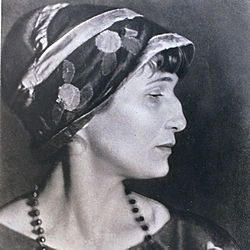
Born: Odessa - 23 June 1889
Died: Moscow - 5 March 1966
Anna Akhmatova was born in Odessa and died in Moscow. In her long career as a poet, she rarely engaged directly with St. Petersburg as a subject of inquiry in her mostly highly personal verse. Nonetheless, her life and work were so tightly interwoven with the tragic and tumultuous fate of Petersburg/Petrograd/Leningrad in the 20th century that few other cultural figures are so widely and instantly identified with the city. The measured, incisive authority of her mature poetry upheld the moral and aesthetic values of the pre-Revolutionary liberal intelligentsia, cementing poetry's role as the human conscience of an often inhuman and amoral urban environment.
Akhmatova was born Anna Andreyevna Gorenko in 1889 in the Odessa suburb of Bolshoy Fontan. Her parents were both from minor noble families, her father a naval engineer and her mother a distant relative of Anna Bunina, acclaimed as Russia's first female poet. When Akhmatova was eleven months old, the family moved to Tsarskoye Selo, where her father became a collegiate assessor. She began her schooling at the Mariinskaya Gymnasium but, after her parents separated in 1905, completed it in Kyiv, where she went on to study law and literature for two years from 1908 to 1910. In the same year, she married Nikolay Gumilyov, a poet three years her senior, whom she had first met in 1903. In 1912, their son Lev was born. He would go on to become a renowned historian and controversial, pioneering anthropologist.
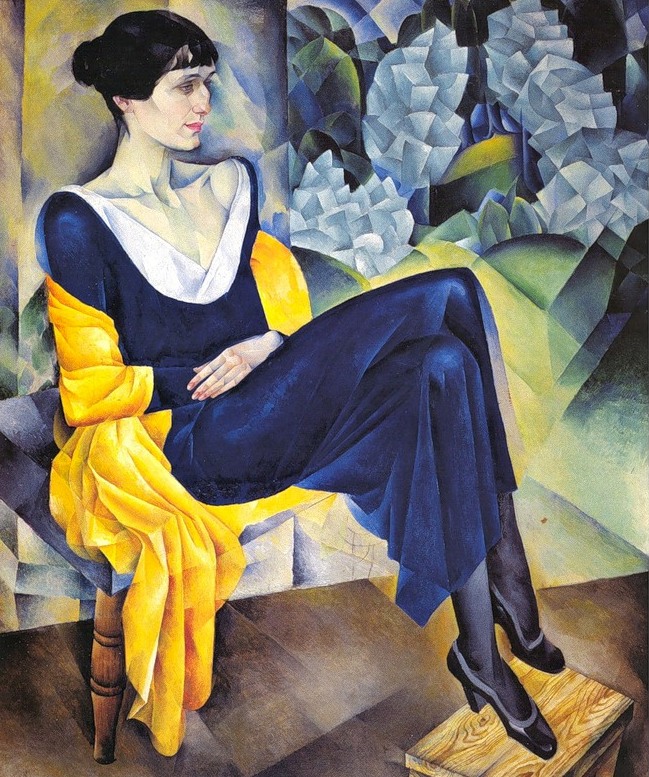
Akhmatova had begun writing poetry at the age of eleven and, encouraged by Gumilyov, she first published her verses in his journal Sirius in 1911. In order not to upset her father, she chose to publish under the pen-name "Akhmatova", the surname of her maternal great-grandmother, purportedly a descendant of the Tatar Horde. She published her first collection of verse, Vecher ("Evening"), in 1912. Her second collection, Chetki ("Beads") appeared in 1914, and was reprinted eight times before 1923, making her reputation as one of the leading poets of her generation and (if we ignore her largely forgotten ancestor Anna Bunina), the first truly significant female voice in Russian literature. She continued to release regular collections of verse through the years of the First World War, the Revolution and the Russian Civil War. The subject of her verse in this first period was almost exclusively love, her inspiration her own romantic relationships and, apart from her remarkable formal aptitude, it was the intense and naked emotional honesty of her poems that won her critical and public admiration.
In the two years after their marriage, Gumilyov and Akhmatova travelled extensively in France and Italy. Akhmatova's relationship with Gumilyov soured quickly. His desperate love for her, which had encompassed one attempt at suicide, had apparently already cooled by the time of their wedding, and Akhmatova herself had never been certain of her own feelings for her husband. A passionate traveller, he departed on his second expedition to Africa in 1913 and, on his return, volunteered early for service in the First World War as a cavalry officer, then served during the Revolution in the Russian Expedition Corps in Paris. The couple, by then thoroughly estranged, finally divorced when he returned to Petrograd in 1918.
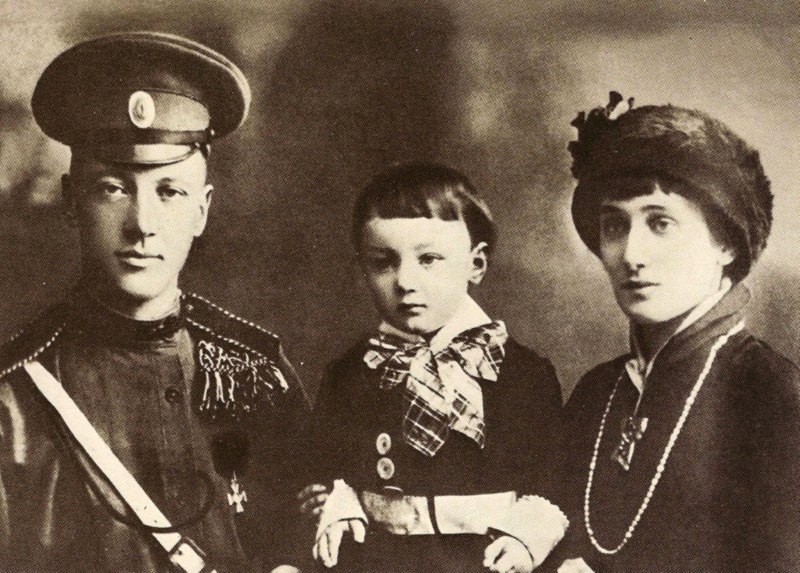
In Paris in 1910, Akhmatova made the acquaintance of Amedeo Modigliani, and their brief affair, resumed when she returned alone to Paris the following summer, had a profound effect on his art and his mental stability. It also produced several remarkable drawings of her. Tall, slender and by all contemporary accounts exceptionally graceful, with strikingly strong facial features, Akhmatova attracted almost universal male admiration. She enjoyed a close friendship with Boris Pasternak, whose life and career were in many respects a mirror image of her own and who, although already married, proposed to her several times. She was also rumoured to have had an affair with the great Symbolist poet Alexander Blok. After her divorce from Gumilyev, she quickly married the poet and orientalist Vladimir Shileyko, although her second marriage lasted only three years and she continued to have affairs. This rich and semi-public romantic biography, along with her widely acclaimed sexual allure, was almost as important to her rapid rise to literary fame as the indubitable quality of her verse.
The darkness and desperation of the war years began to be reflected, albeit initially only tangentially, in her verse, and by the time of the October Revolution she was discussing with her habitual frankness in her work her uncertainty over remaining in Russia and her terror of the future. Nonetheless, like Pasternak and Blok and unlike the vast majority of her social circle, she chose to remain. As too did Gumilyev, although on his part, considering his military service and his poorly concealed disdain for the Bolshevik government, the decision smacked of recklessness. Almost inevitably, he was arrested, tried and executed by the Cheka in 1921 for purportedly participating in a monarchist conspiracy.
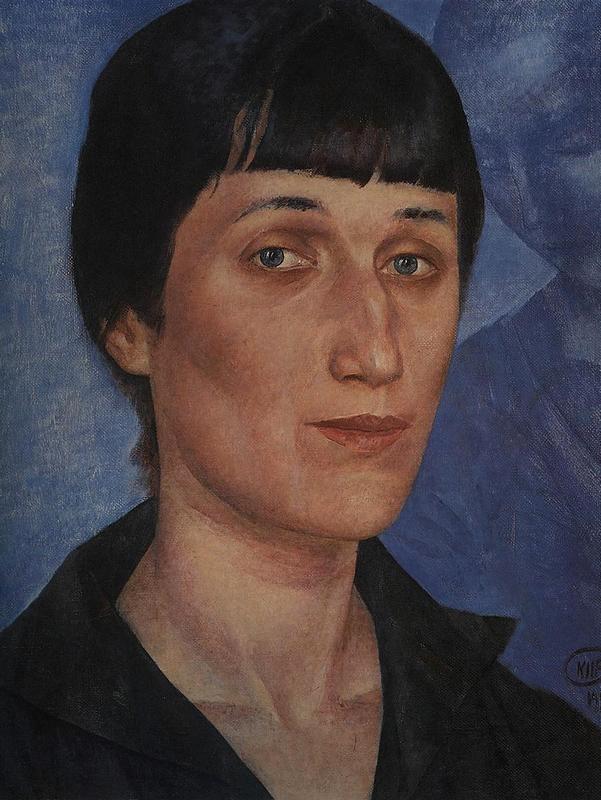
According to the degraded reasoning of the authorities, Gumilyev's alleged guilt cast permanent suspicion on Akhmatova and her son, making their lives increasingly difficult. From around 1925, she was unable to publish her poetry. She never stopped composing verse, but much of her work from the period, scantily recorded for fear of denunciation, was lost during later upheavals. She worked when she could as a critic and translator, producing Russian versions of works by Victor Hugo and Giacomo Leopardi amongst others. Money was desperately short nonetheless, and Akhmatova also found it difficult to obtain a proper education for Lev, as institutions were unwilling to accept a child marked as "anti-Soviet" by association.
Meanwhile, an ever increasing number of her friends and colleagues found themselves victims of Stalin's purges, and Akhmatova was made constantly aware of the state's malevolent scrutiny. In 1922, she had taken up residence with her lifelong friend, the art critic Nikolay Punin. In the early 1930s, Punin was arrested, but with Pasternak's help Akhmatova managed to petition for his release. At around the same time, it would later be revealed, Akhmatova was placed under constant government surveillance and a fat dossier of denunciations was compiled. The cruelest blow came in 1938, when her son Lev was arrested and sentenced to five years in the Gulag. This accumulation of horrors lead to the composition of one of her greatest works, the verse cycle Requiem, written between 1935 and 1940.
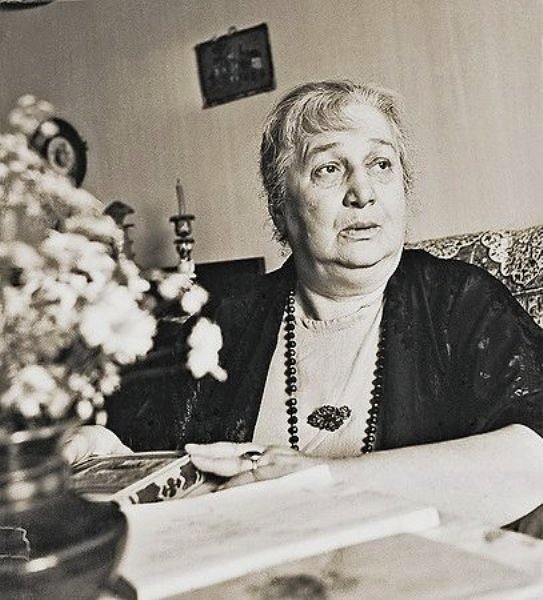
The Second World War brought a temporary relief from the Terror, but replaced it with an even greater horror in the form of the Siege of Leningrad, which Akhmatova witnessed the first months of. She began work on her Poem without a Hero, which she herself considered her masterpiece, and which she would work on for the next 20 years, dedicating it to the victims of the Siege. She was evacuated to Tashkent in 1942, where she suffered from typhus but otherwise actively involved herself in the war effort by writing patriotic verses, some of which even made their way into the pages of Pravda, and visiting the wounded in military hospitals to give readings. She returned to Leningrad in 1944 to bear witness to the horrific destruction the war had wrought on her beloved city.
Her son Lev finished his sentence in 1943 and was sent directly to the front line, surviving the war and even marching on Berlin in 1945. If there was any hope that victory had brought an end to the family's troubles, however, it was quickly dashed the following year when Akhmatova was specifically condemned and expelled from the Union of Writers, along with the enormously popular satirist Mikhail Zoshenko, by the newly appointed cultural commissar Andrey Zhdanov. Coming from the man whose Doctrine, the USSR's cultural policy in the final years of Stalin's life, sought to reduce all art to the packaging and marketing materials of an inane ideology already utterly bereft of either intellectual substance or moral authority, this was a backhanded recognition of Akhmatova's extraordinary status. Unable to publish properly for over two decades, she was still revered, respected and adored. The exceptional clarity and uncompromising honesty with which she had once recorded the emotional turmoil of her youth served equally effectively for her to bear witness to the monstrous machinations of the Soviet state, giving her a moral authority against which the likes of Zhdanov could only react with adolescent spite.
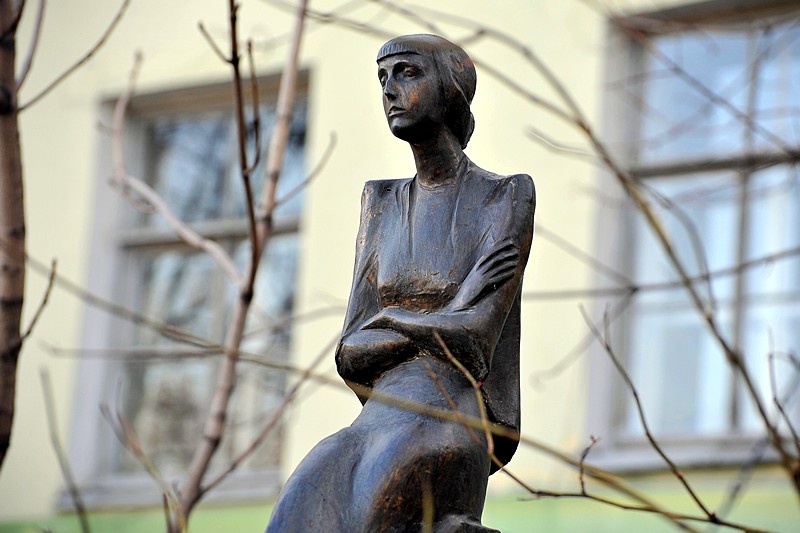
She would continue to pay the price. Lev was arrested again in 1949 and sentenced to ten more years of hard labour. In a vain attempt to win his release, Akhmatova even wrote a collection of verse praising Stalin, but to no avail. It was not until 1956 and the Khrushchev Thaw that Lev was eventually released and rehabilitated. Under Khrushchev, Akhmatova began to regain her freedom and receive official recognition of her status. In 1958, her first collected works was published, and further collections appeared at the beginning of the 1960s, although Requiem and Poem without a Hero, arguably her greatest mature works, would not appear in print until long after her death. She began efforts to reconstruct the works of her lost years, and received state honours both in the USSR and abroad. She was visited by foreign dignitaries, including Isiah Berlin and Robert Frost, and in 1965 she was allowed to travel abroad to France and Great Britain, where she was awarded an honorary doctorate by Oxford University.
Akhmatova died on 5 March 1966 while undergoing treatment for heart trouble at a sanatorium in Domodedovo outside Moscow. Her funeral was attended by thousands of mourners, andshe was buried at the cemetery of the St. Petersburg suburb of Komarovo, where she had long had a summer residence. There and at her apartment in the Fountain House on the Fontanka River Embankment, she was regularly visited by a younger generation of artists and poets, most notably among them Joseph Brodsky, who by the time of her death had begun his own wearisome battle with the state, and who would be widely hailed her moral and artistic heir.
Especially in St. Petersburg, Akhmatova remains a figure of universal admiration and affection. There are two museums in her honour, of which the Anna Akhmatova Museum at the Fountain House is definitely the superior and one of the most popular museums in the city. There are statues in her memory in the courtyard of the philological faculty of St. Petersburg State University, in front of a secondary school on Ulitsa Vosstaniya, and in the garden of the Fountain House. In 2006, a monument to her was erected on Robespierre (now Voskresenskaya) Embankment directly opposite the Kresty Holding Prison, where she had been forced to spend countless hours queuing to hear news of her son and other loved ones.

